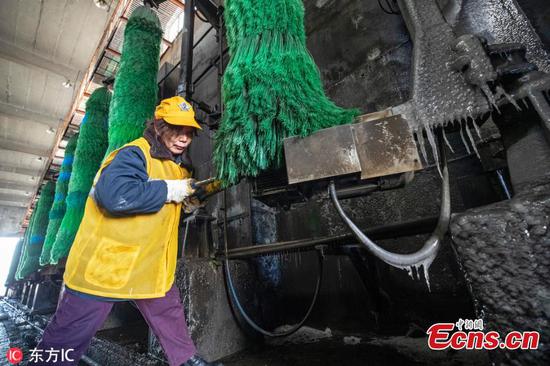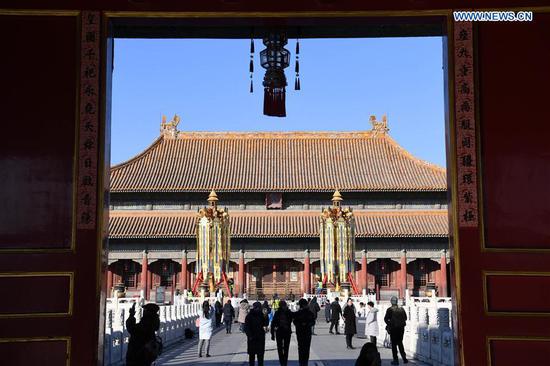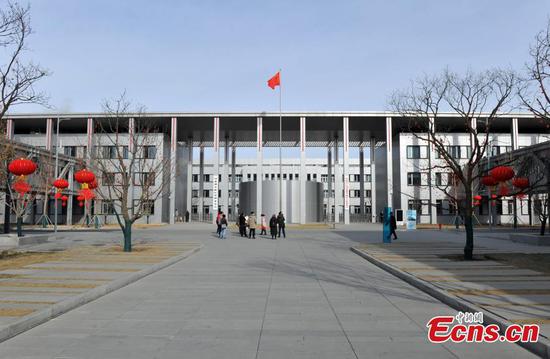China's annual fiscal income rose to 18.34 trillion yuan last year, up by 6.2 percent from 2017. The total fiscal spending exceeded 22 trillion yuan, a year-on-year growth of 8.7 percent, the Ministry of Finance said on Wednesday.
The government's tax income reached 15.64 trillion yuan, an 8.3 percent rise from a year earlier. The growth pace slowed down from 10.7 percent in 2017, according to the ministry.
Growth rate of the tax income from industrial sector slowed by 4.7 percentage points to 7.4 percent in 2018, due to the tax and fee cut and value-added tax reform, said Li Dawei, deputy head of the ministry's National Treasury Department.
This year, the government spending will be expanded moderately to support key construction projects and stabilize economic growth, said Li, which increases concerns that the government debt burden may rise.
But Hao Lei, head of the budget department of the Ministry of Finance, said at the press conference on Wednesday that the government debt ratio - total government debt to the GDP, was at 37 percent by December. It is lower than the European Union's 60 percent warning line.
The debt ratio for local governments was 76.6 percent last year. As per international standards, fiscal risks face exposure if the ratio rises higher than 100 to 120 percent, according to the official.
The finance ministry will further improve debt management work this year, to prevent risks from local government bonds and to tighten control on the contingent liabilities, or the "hidden" debt, said Hao.


















































